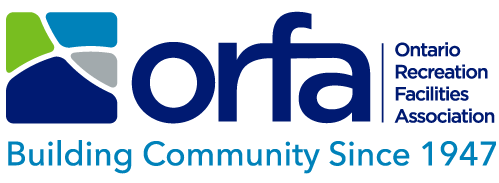- ORFA Home
- Resource Centre
- Technical Corner
- What Happens If An Operation Fails to Meet All the Standards & Best Practices?
Technical Corner
What Happens If An Operation Fails to Meet All the Standards & Best Practices?
April 2022
Members often become overwhelmed by the amount of legal information that is “floating around” that they do not even know exists. As ORFA Technical Director, I feel their frustration as it is my responsibility to track these documents and try to create general awareness. Just recently, I uncovered the O. Reg.346/12: Registration Under Part II.2 Heating Systems and Standby Power Systems under the Environmental Protection Act, R.S.O. 1990, c. E.19 which directs an owner of these systems on their legal obligations to inspect, test and maintain the equipment. Often during legal testimony, the question of “was that standard adopted by the operation” is raised. Operations often do not adopt everything that a professional needs to evaluate regarding something that may have occurred within a facility.
International groups have been formed in nearly every technical discipline in order to develop consensus standards, among other items. There are a myriad of ASTM and ANSI standards and codes that are often used as required. Is it reasonable for an operation to track and adopt all of them? What happens if one is adopted but not others from the same body, does that make the operation more legally exposed? Sorting through this type of information is a required skill of todays facility manager as they must use every tool available when evaluating a situation or event. It is reasonable to expect that when performing any operational analysis that a facility manager should start with adopted standards and codes? Afterward, cross-comparisons with well-recognized industry guidelines and best practices will help support the conclusions
All recognized standards undergo updates and changes. So, when an operation adopts a 2009 edition of a code or standard, can changes made in the more recent edition be ignored? The answer is not always. The facility manager needs to overlay the new or updated directives and determine the level of risk. At times, there are small changes that may not impact safety. For example, when bars on playground widths change by millimetres from one edition to the next, there may not be immediate concern. However, when events like the Fernie, BC refrigeration plant explosion occurs and the investigators discover that the ventilation system was poorly designed, inadequate, or improperly maintained and did not come anywhere near current code requirements there is a higher level of review and response requirement. [More]
A proactive facility manager will monitor changes within the industry and related legal impacts and update others as required with recommendations as to how these changes might be best addressed. By including others in the awareness of any change, it confirms that the facility manger is not functioning in isolation. This helps prove diligence and commitment through being informed. Often the role of the facility manager is that of “information broker” meaning that investment in change may be out of reach because of capital investment but raising awareness to key decision makers on how to operate better or more safely is do-able. The Infamous Captain Edward Smith was in charge of the doomed Titanic when it went down on April 14, 1912, with 2,200 passengers and more than 1,200 were lost. Having information and doing the right things with it is the challenge to be met.
Comments and/or Questions may be directed to Terry Piche, CRFP, CIT and Technical Director, Ontario Recreation Facilities Association
|
Note: The publisher, (Author(s)/General Editor(s)/Licensor(s)) and every person involved in the creation of this communication shall not be liable for any loss, injury, claim, liability or damage of any kind resulting from the use of or reliance on any information or material contained in this communication. While every effort has been made to ensure the accuracy of the contents of this communication, it is intended for information purposes only. When creating this communication, none of the publisher, the (Author(s)/General Editor(s)/Licensor(s)) or contributors were engaged in rendering legal or other professional advice. This communication should not be considered or relied upon as if it were such advice. If legal advice or expert assistance is required, the services of a competent professional should be sought and retained. The publisher and every person involved in the creation of this communication disclaim all liability in respect of the results of the any actions taken in reliance upon information contained in this communication and for any errors or omissions in the works. They expressly disclaim liability to any user of the work. |
